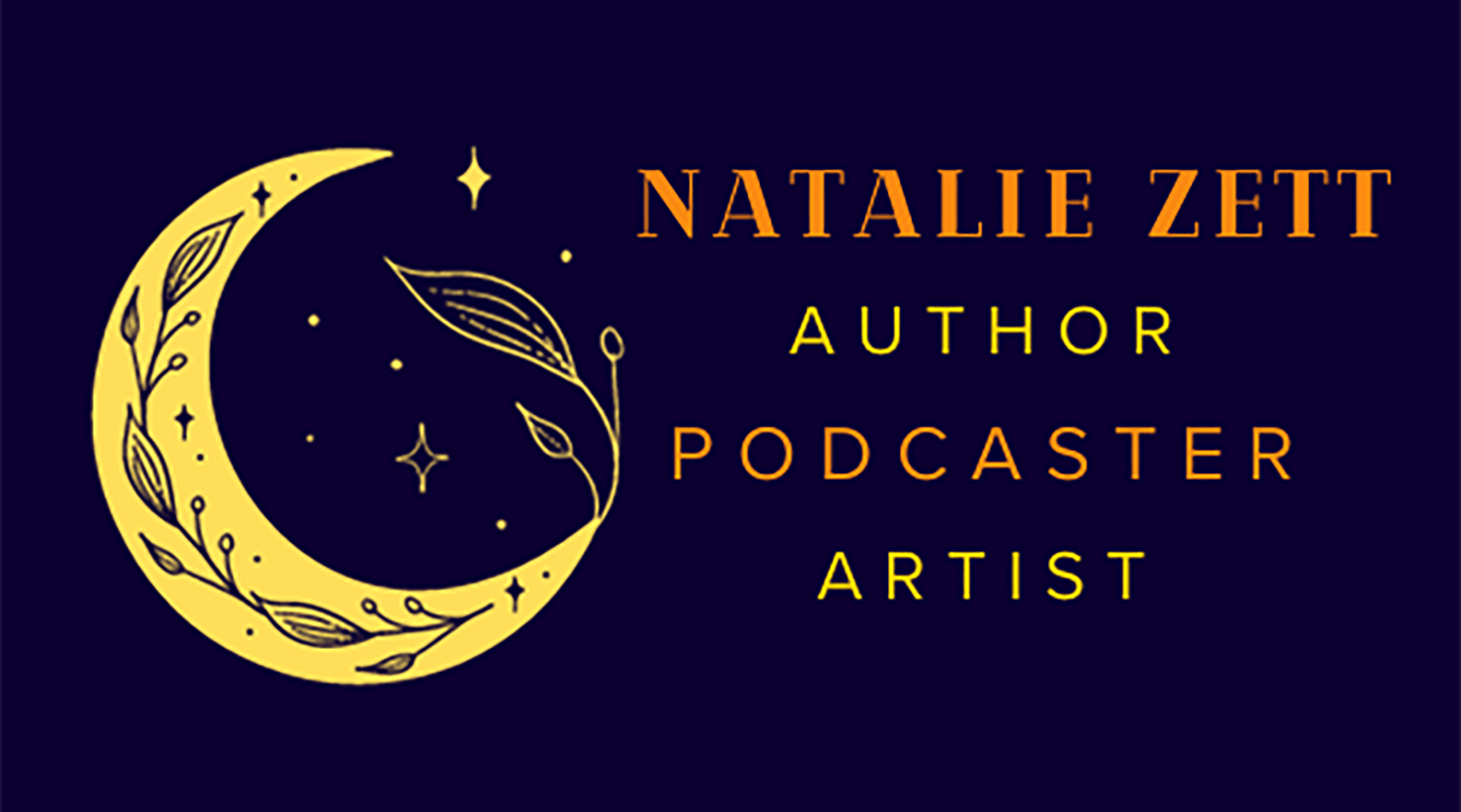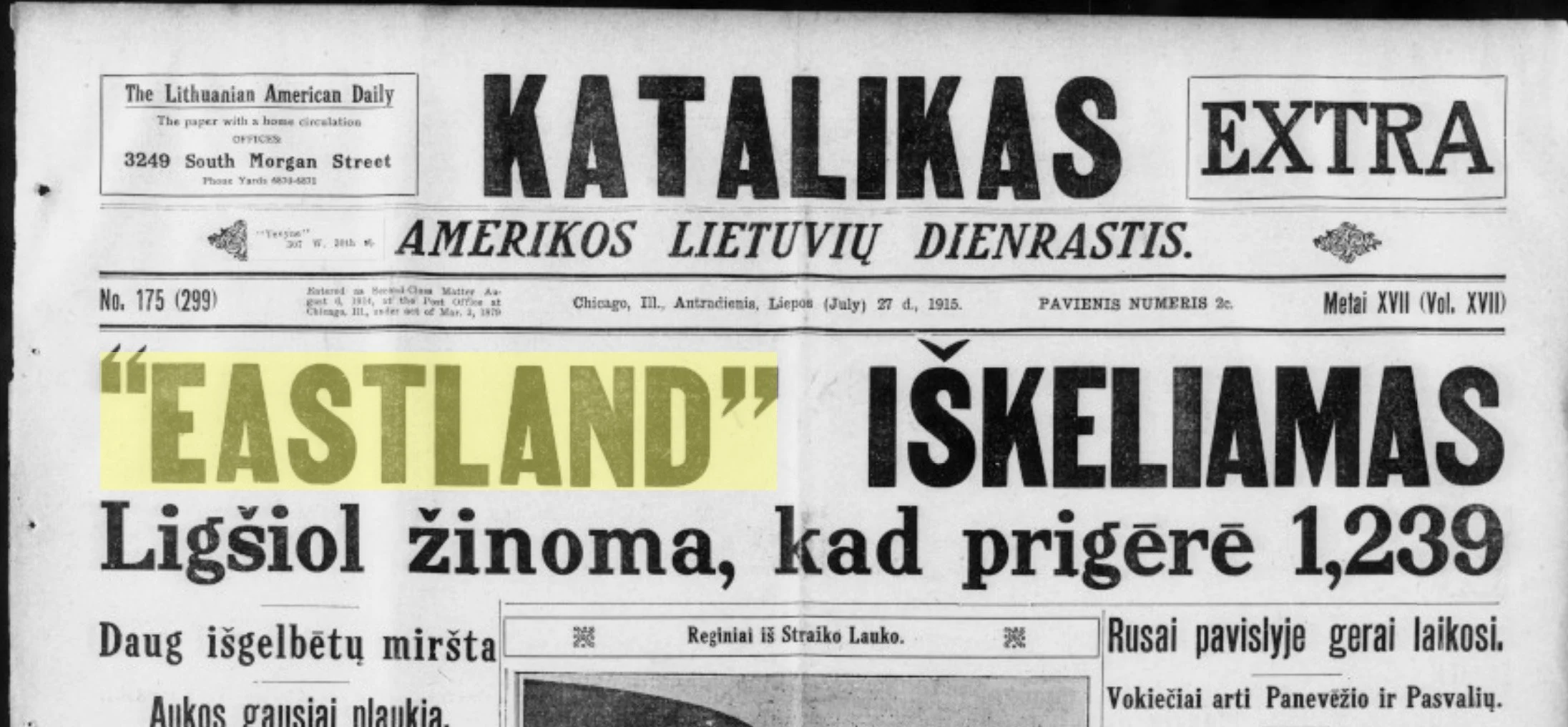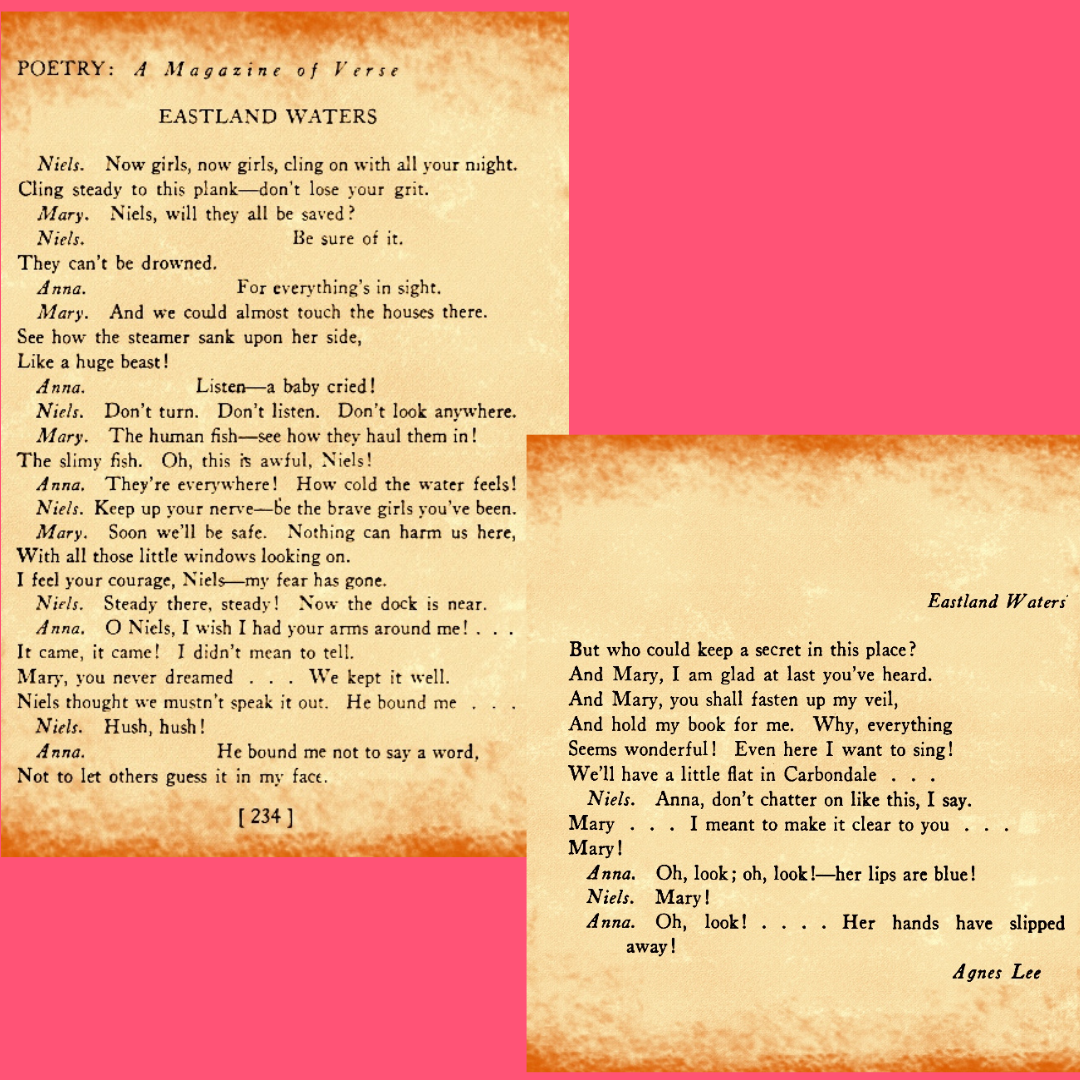Eastland Waters: Melody, Verse, and Lithuanian Legacy in Chicago
Featured in this episode are:
Robertas Semeniukas of Žalvarinis, a folk rock band from Vilnius, Lithuania, who gave me permission to use one of their tunes to open and close this episode.
The following Lithuanian-American victims of the Eastland Disaster: Kotrina Kasparaite (aka Kathryn Caspar); Petronele Laurinaciute (aka Hattie Laurainitis or Lorenat); Juozefa Rucinskaite (Josephine Roshinski); Boleslovas Sivickis.
The poet: Agnes Lee (aka Martha Agnes Rand).
Story Behind the Story
There’s always a story behind every podcast, and here’s the story behind Eastland Waters: Melody, Verse, and Lithuanian Legacy in Chicago.
I'm a total language nerd! Growing up, I was surrounded by languages. My parents were first-gen Americans, and I lucked out having grandparents around who kept our family's heritage alive.
My grandpa was a real character - he taught me to swear in German, Russian, and Polish before I even started school! Talk about a head start. On my dad's side, I got to know my Slovak-speaking grandma well enough to pick up her sayings and even do impressions of her. My Carpatho-Rusyn grandpa passed before I was born, but I think he's the reason I picked up the Cyrillic alphabet pretty easily.
I started French and Russian in 2nd grade - yeah, you read that right. This was in a regular city public school, believe it or not. In high school, I added German to the mix and kept at it through college and grad school. I even dipped my toes into some ancient languages like Greek, Hebrew, Aramaic, and Ugaritic.
Later on, I landed a job managing translations for 15 languages in a global company. Languages? I just can't get enough of them!
But then…Lithuanian!
Fast forward to my deep dive into the Eastland Disaster stories. This quest took me to the treasure trove of ethnic newspapers at the Illinois Digital Library. It felt like striking gold. I started with the familiar – Polish and German – and had some ace translators in Warsaw and Berlin to back me up. The stories I found were heart-wrenchingly beautiful, and it's an honor to share these glimpses of lives lost too soon.
I began with the “easier” languages (for me, that is)—Polish and German. Fortunately, I also work with a couple of translators based in Warsaw and Berlin who can error check my translations. There was no shortage of unknown and under-told stories in these newspapers and it is an honor to share these snippets from lives that ended too soon.
But then, Lithuanian newspapers like Lietuva and Katalikas kept showing up in my searches. I thought I could handle any language, but Lithuanian? It was a whole new world. I hesitated at first but kept coming back, driven by a feeling that I was being guided in my exploration of the Eastland Disaster.
Lietuva, 30 July 1915. Chicago.
Katalikas, 27 July 1915. Chicago.
This journey isn't just about my family's tangled and messy history with the tragedy. It's about something bigger. I'm reminded of a verse from Pirkei Avot, which I know from ancient studies but really stuck with me thanks to Yentl':
"If I am not for myself, who will be for me? And when I am for myself alone, what am I? And if not now, when?" - Pirkei Avot 1:14
This became my mantra as I reconstructed the world of 1915 Chicago and its diverse communities affected by the Eastland Disaster, leading to my ongoing Eastland Chronicles series.
So, I fired up Google Translate, YouTube, and ChatGPT-4 to tackle Lithuanian, and they did a stellar job. I still lean on a local translator for the final checks, but these tools have opened up a whole new world in my research.
What is a Story without a Song?
An added gift was connecting with the founder of a contemporary musical group in Lithuania. I became a Žalvarinis fan girl several years ago when I was searching for some world music and never dreamed this would fit into the story of my family. Long story short, I connected with Robertas Semeniukas who gave me permission to use one of their songs, Kabice, for this podcast episode! I spend a lot of time reconstructing the past, but in that process, I also wanted to add a contemporary touch and there’s nothing more universal than language.
Ongoing Challenge
The Lithuanian language challenge apparently is nothing new. Check out this article from the Lithuanian newspaper, Katalikas.
Headline how Many Lithuanians Died?
“It's difficult to determine how many Lithuanians died, were saved and missing in the Eastland disaster because Lithuanians often used distorted surnames with Polish or other types of endings. In the lists of the dead, saved and missing, not a single person with a true Lithuanian surname is found. This habit of altering their surnames unfortunately affects them most when any disaster occurs.” - Katalikas, 27 July 1915.
Eastland Waters by Agnes Lee
I concluded Episode 40 with an unforgettable poem by Agnes Lee. Eastland Waters is a fictional dialogue between victims Niels, Mary, and Anna and offers a haunting reflection of the disaster's human impact. Tune in for an episode where history, music, and storytelling converge in a powerful tribute.
Podcast Link
Eastland Waters: Melody, Verse, and Lithuanian Legacy in Chicago
Other Links
The 26 July 1915 issue of Katalikas featured the stories of those who were featured in this podcast episode. To see the original along with the English translation, click on the link.
For more information about Žalvarinis and Robertas Semeniukas
Last updated: July 12, 2024




